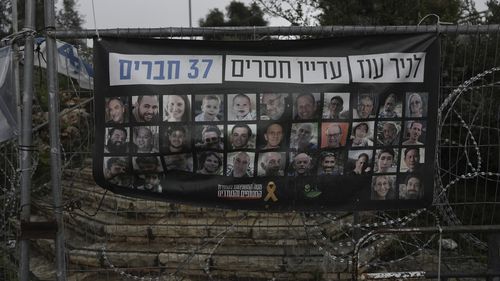Benjamin Netanyahu, the Prime Minister of Israel, has expressed his determination to seek revenge following what he called a “cruel and malicious breach” of the ceasefire agreement. This comes after it was discovered that the body returned by Hamas did not belong to an Israeli mother of two young boys, contrary to the promises made by the militant group.
This turn of events has cast uncertainty on the stability of the fragile ceasefire deal. The agreement, which has paused 15 months of conflict, is now facing questions about its continuation as it approaches the end of its initial phase.
Despite these concerns, there are signs suggesting that the next phase of the deal will proceed as scheduled. This involves the release of six Israeli hostages in exchange for hundreds of Palestinian prisoners, set to take place on Saturday.

Israel has been carrying out a broad military offensive in the occupied territory since the ceasefire took effect.
If the current phase of the ceasefire goes according to plan, Hamas would retain about 60 hostages living and dead. About half — all men — are believed to be alive.
Hamas has said it won’t release the remaining captives without a lasting ceasefire and a full Israeli withdrawal.
Netanyahu, with the full backing of the Trump administration, says he’s committed to destroying Hamas’ military and governing capacities and returning all the hostages, goals widely seen as mutually exclusive.
Trump’s proposal to permanently remove about two million Palestinians from Gaza so the US can own and develop it has thrown the ceasefire into further doubt.
In his latest comments, Trump said that he was “a little surprised” by Egypt and Jordan’s rejection of the idea and that he would not impose it.

Inside Hamas’ ceremony to hand back hostage remains
“I’ll tell you, the way to do it is my plan. I think that’s the plan that really works. But I’m not forcing it. I’m just going to sit back and recommend it,” Trump said in a Fox News interview.
Hamas could be reluctant to free more hostages if it believes that the war will resume.
Israel’s military offensive killed more than 48,000 Palestinians, mostly women and children, according to Gaza’s Health Ministry, which doesn’t distinguish between civilians and combatants. Israel says it has killed more than 17,000 fighters, without providing evidence.
The offensive destroyed vast areas of Gaza, reducing entire neighbourhoods to rubble. At its height, the war displaced 90 per cent of Gaza’s population.
Many have returned to their homes to find nothing left and no way of rebuilding.







